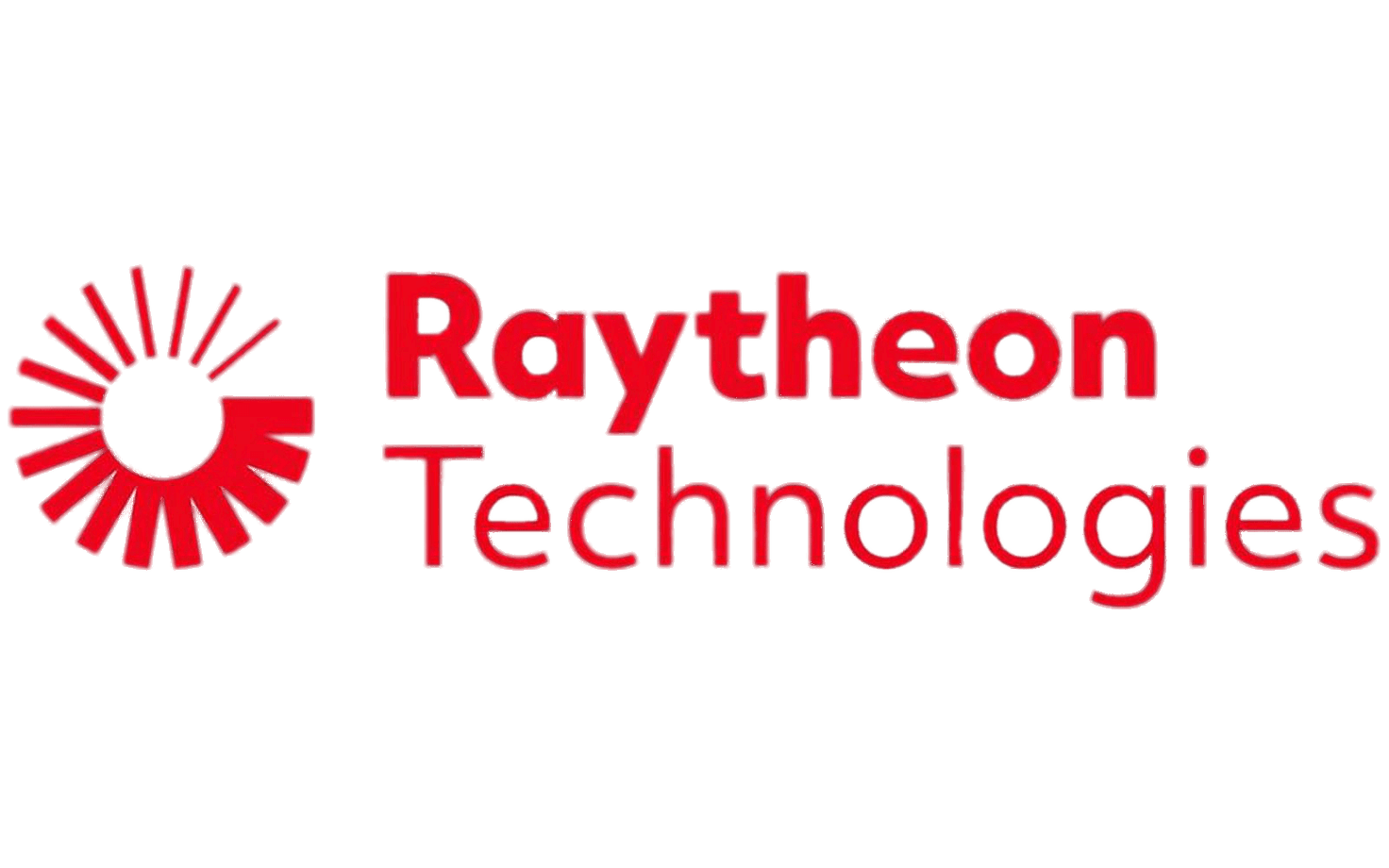
Produce a Collaborative Workspace so that Teams Can Connect to Increase Productivity and Shorten Project Timelines.
Defining Expectations
Project
Raytheon R-Future WorkFlow Platform
Roles
Lead UX Designer, Researcher, Project Manager and Owner
Timeline
1.5 Years (2012-2014)
Tools
Viseo, Adobe Creative Suite, Google Draw
Centralized Data
One of the biggest challenges was a centralized data source. Engineers were working in silos, using excel sheets on desktops, performing identical testing. Sharing data could greatly reduce redundancies.
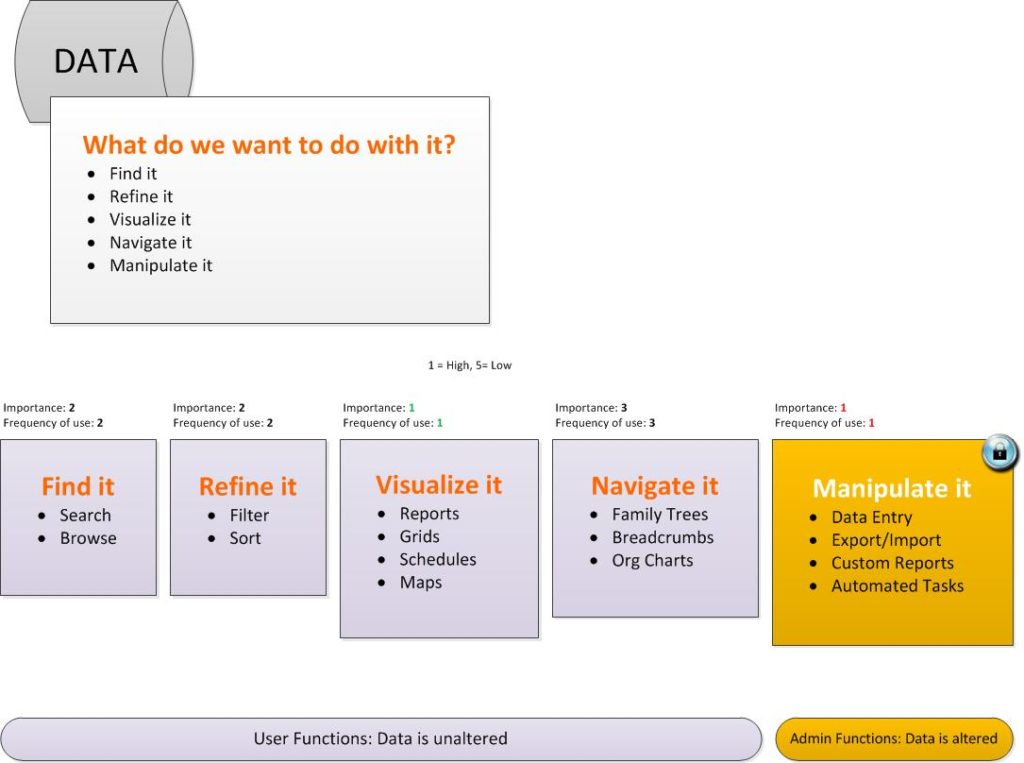
Connect Teams
Raytheon desperately needed a collaborative space where team members could have instant access to materials, updates, and timelines.

Usable WorkFlow
The tool needed to be interactive and integrated into a user's project so that it was useful and not just a time keeper.
Doing the Research
Finding the Opportunities
Interviews
Over the course of the project I spent many hours working close with and interviewing engineers to gather requirements and test hypothesis on working models.
Data Repository
I gathered a list of available and needed data streams that would be useful and productive to include.
Integrated Methods
I evaluated many Day-In-The-Life's to see how engineers were saving and delivering their work products in order to see what functionalities this platform needed to offer.
Mapping
The largest amount of time I spent was mapping data streams, user flows and interactions, and collaborative methods.
Data Repository
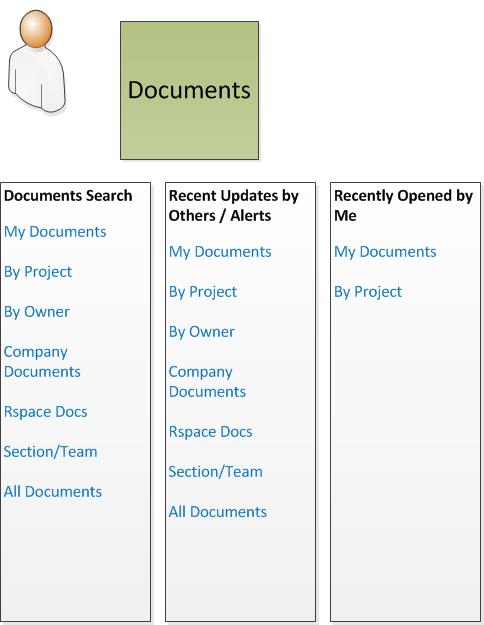
Integrated Methods
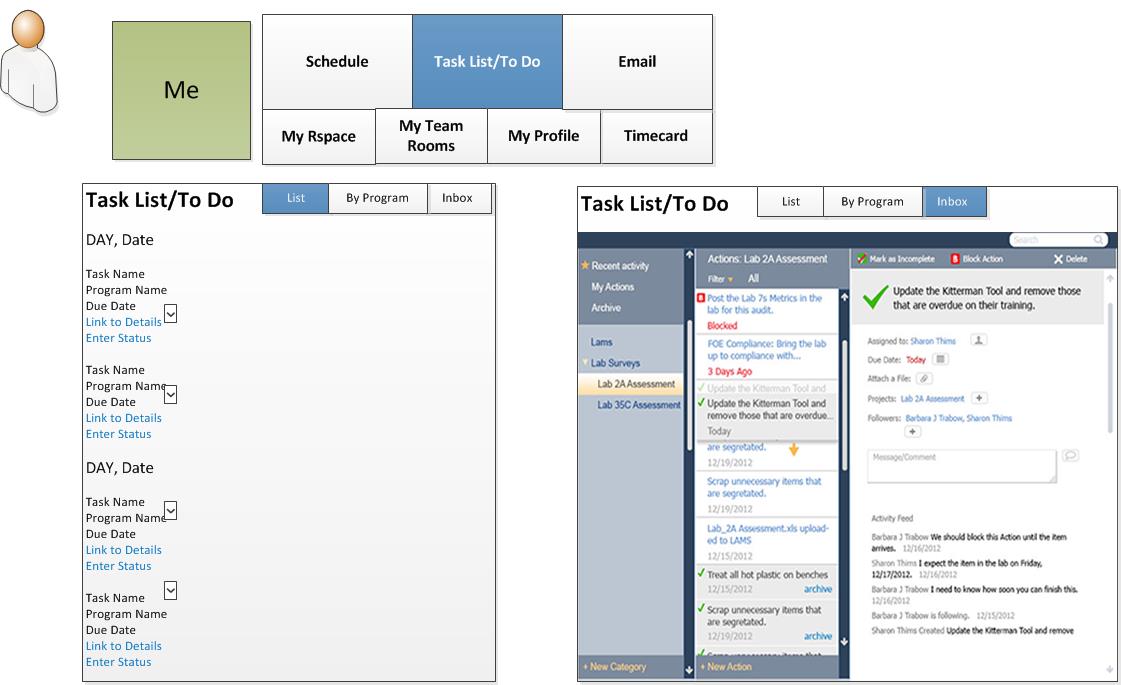
Opportunities for Success
Defining Offerings
The system would clearly offer different workflows, including communication, reporting, task management and integration with common software.
Seemless Navigation
Engineers should be able to work a problem and then instantly share it and it's designations into the collaborative space.
Social Interactions
I could borrow very simple actions from the most common social networks to enhance visibility and collaboration. Sharing and Following functionality would instantly update team members as well as project management.
Design
Designing the Experience
Wireframes
I created extensive wireframes which were tested before any design work was added.
High Fidelity
I created a branded "skin" to apply to the wireframes for company identity and smooth UI.
Prototypes
I created a low fidelity prototype using Adobe Fireworks which was used for stakeholder presentations and usability testing.
Usability Testing
I tested wireframes and designed prototypes with engineers using task completion, language and situational comprehension, and data integrity.
Wireframes
Because of the complexity and scope, I found it easier to create hybrid wireframes using elements from the flows with hypothetical interfaces.
Usefulness
Wireframes were built at each step in the flow to verify what the user needed to see and to do.
Organization
Wireframing tasks and materials in an interaction allowed me to test with user for their priorities and most useful next steps.
Education
Wireframes included the planned socialization so that I was able to test its appeal before approaching final design stages.
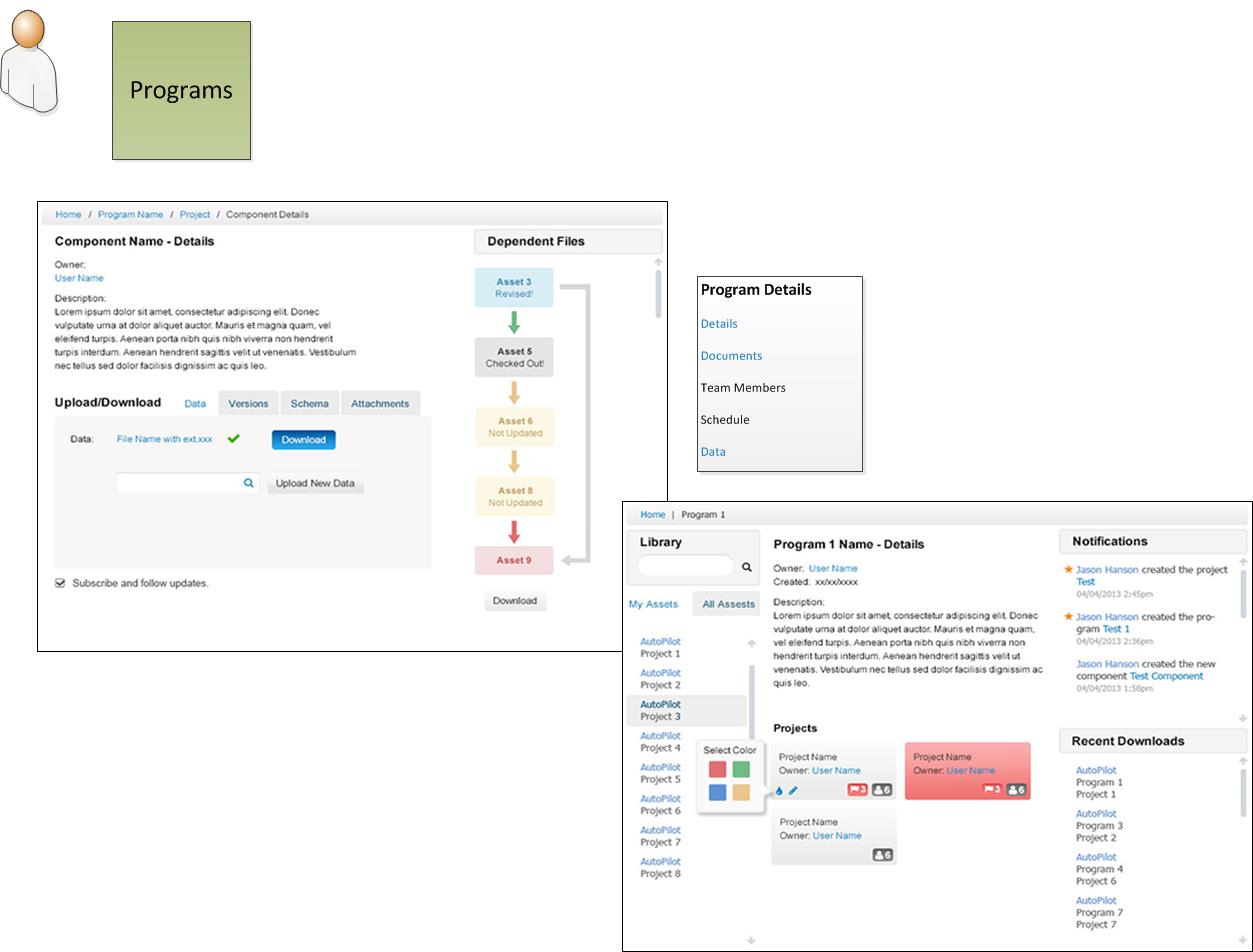
High Fidelity
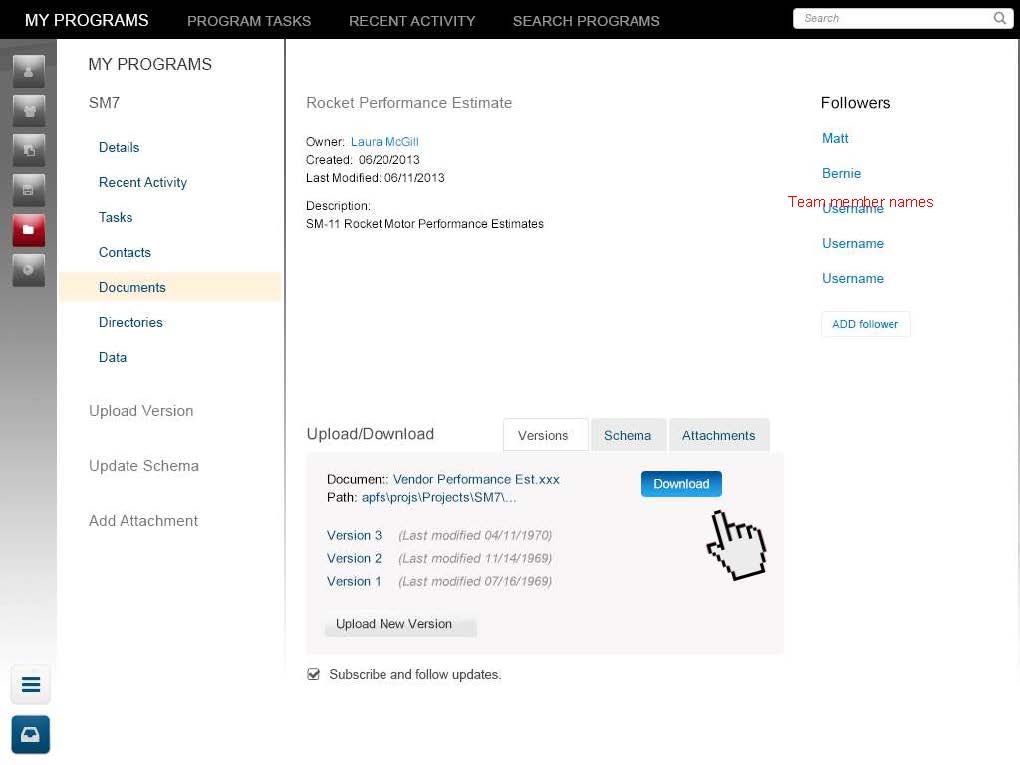
Prototype
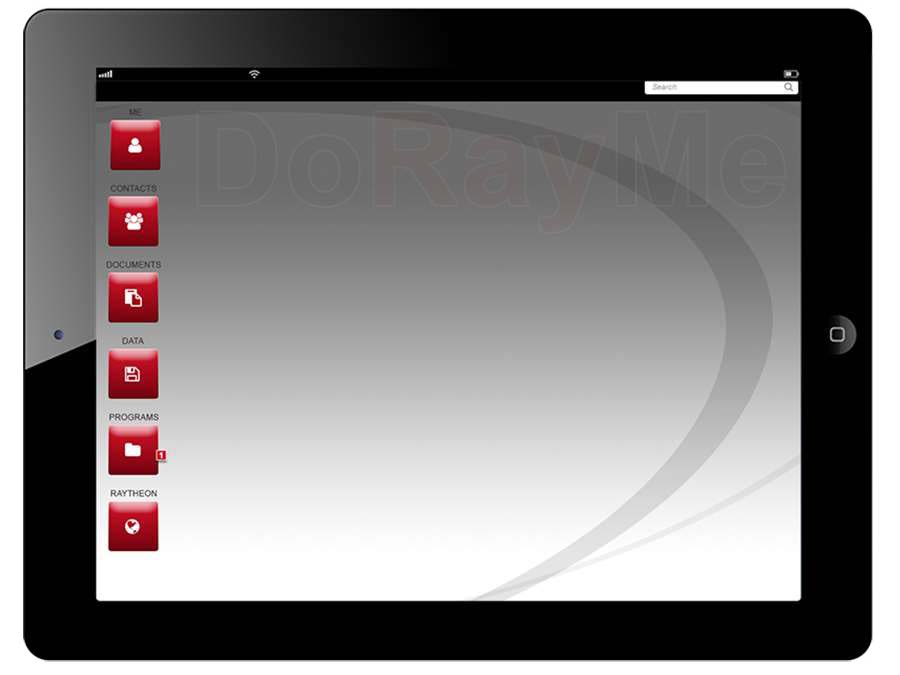
Usability Findings
Team Connectedness
One of the highest delights that engineers expressed was the ability to share and follow with other team members. Time writing emails was eliminated with simple social actions.
Project Management
Another win for engineers was a greater understanding of a project's scope and status, as well as the validity of share materials.
Contribution and Ownership
The planned versioning of materials and data sets was consistently one of the most useful features for engineers trying to share with or utilize from other team members.
Wrap Up
I was able to complete my investigation and construction of the proposed project within the employment contract, at which time I documented all materials for hand off.
Reflections
Actual Rocket Science
I have rarely felt as exhausted and inspired as I was on this project. I had to learn rocket science from actual rocket scientists in order to build them a useful environment.
Evolution of the Discipline
In these early days of UX, I was in a new and undiscovered role using tools not created for my purposes. I believe today this project could be achieved much faster and with much more clarity in the deliverables.
Evangelizing
With this project more than any other I had to promote my methods and techniques with stakeholders, loudly, in order to perform my research and access the needed people and materials. Engineers, on the other hand, were simply ecstatic to see their requests coming to life.